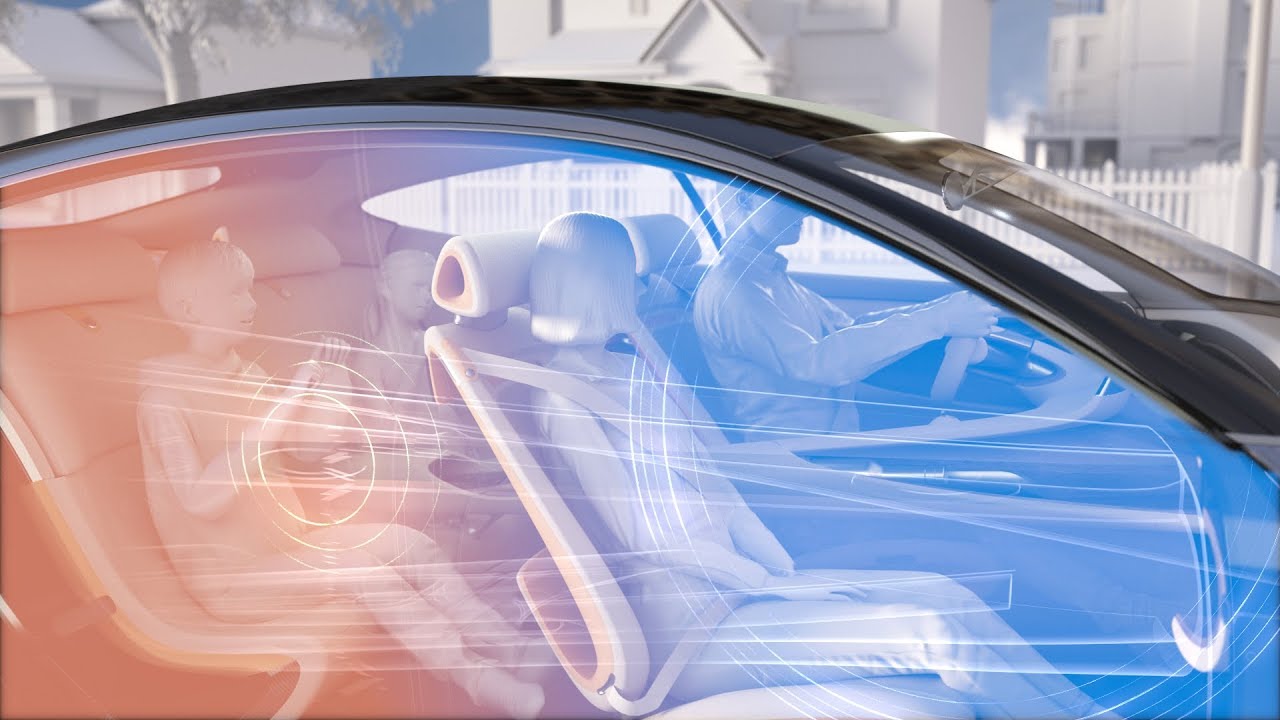*See Kia demonstrate the technology in the above video
Kia Motors has shown off its next-generation Separated Sound Zone (SSZ) technology that allows each passenger of a vehicle to experience an audio stream tailored to their individual needs, including music, hands-free phone calls, and vehicle alerts, whilst maintaining a headphone-free social space where passengers can converse freely.
SSZ technology creates and controls the acoustic fields of the car, allowing the driver and each passenger to hear isolated sounds. The many speakers installed in the vehicle feature technology that uses scientific principles to reduce or increase audio levels of sound waves. This negates the overlap of sounds being heard in each seat, creating the same effect as current noise cancellation systems, but without the need for headphones.
“Customers in the autonomous navigation era will demand increasingly customizable entertainment options within their vehicles, which includes technological innovations such as the Separated Sound System,” said Kang-duck Ih, Research Fellow at Kia’s NVH Research Lab. “I hope by providing drivers and passengers with tailored, independent audio spaces, they will experience a more comfortable and entertaining transportation environment.”
People’s musical tastes vary, so some passengers choose to use headphones during a journey to isolate their audio stream, but this also creates an unnecessary social barrier when interacting with other passengers. When travelling in a vehicle equipped with next-generation SSZ technology, each passenger can connect their smartphone via Bluetooth and listen to their own music without interference from, or interfering with other passenger’s audio streams.
When the SSZ is utilized, hands-free phone calls can also be isolated to individual passengers, ensuring privacy when having important phone conversations on the move.
Furthermore, this ground-breaking technology can eliminate unnecessary sounds for the passenger, but provide them for the driver. Navigation sounds, or various alerts allow the driver to focus on controlling the vehicle, while the SSZ system isolates these sounds, maintaining a quiet area for the other passengers. This has a particularly strong application for drivers with a sleeping child in the vehicle.
SSZ technology has been in development since 2014, and the completed mass production system is expected to be ready for installation in vehicles within one to two years.
